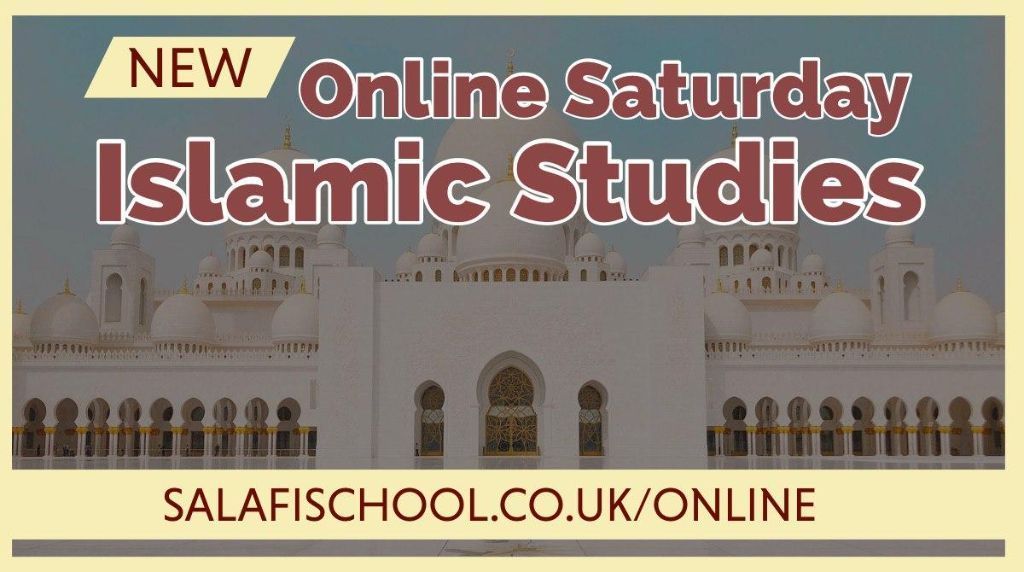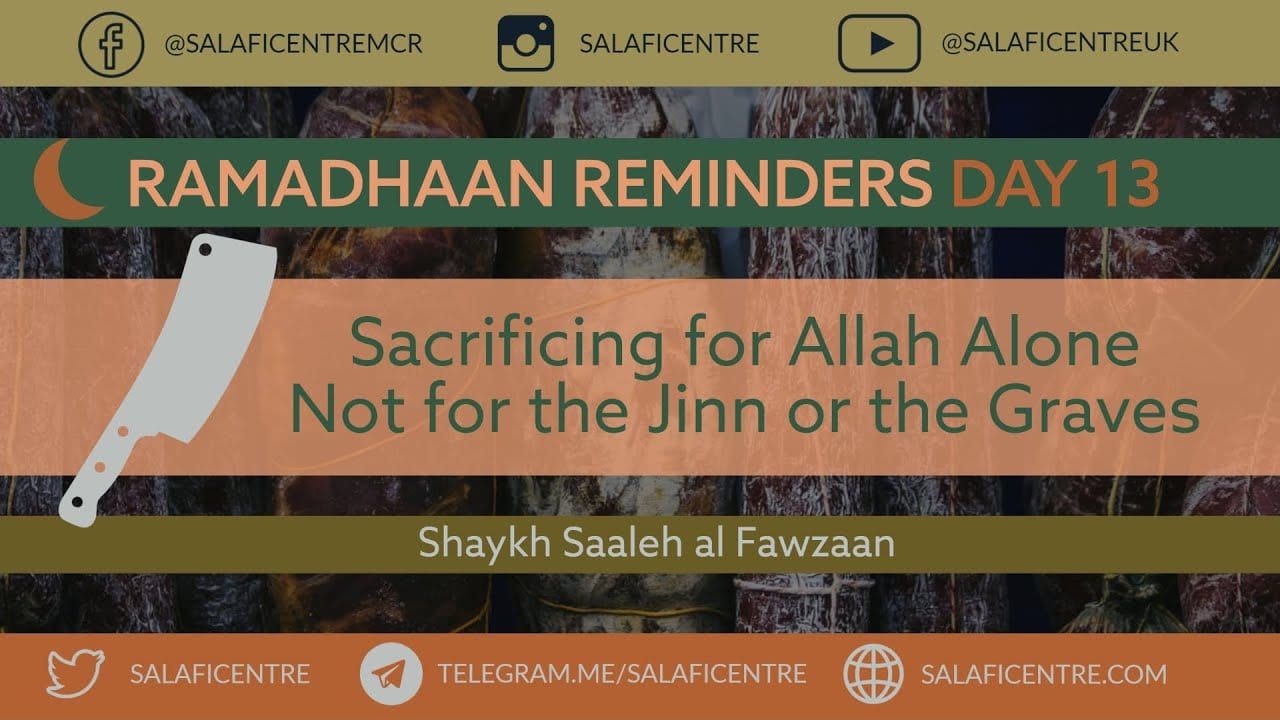In The Name of Allaah, The Most Merciful, The Bestower of Mercy.
Allaah [The Most High] said:
لَّقَدۡ كَانَ لَكُمۡ فِى رَسُولِ ٱللَّهِ أُسۡوَةٌ حَسَنَةٌ۬ لِّمَن كَانَ يَرۡجُواْ ٱللَّهَ وَٱلۡيَوۡمَ ٱلۡأَخِرَ وَذَكَرَ ٱللَّهَ كَثِيرً۬ا
Indeed in the Messenger of Allah (Muhammad) you have a good example to follow for him who hopes in (the Meeting with) Allah and the Last Day and remembers Allah much. [Surah Al-Ahzaab Ayah 21]
[لَّقَدۡ كَانَ لَكُمۡ فِى رَسُولِ ٱللَّهِ أُسۡوَةٌ حَسَنَةٌ۬ – Indeed in the Messenger of Allah (Muhammad) you have a good example to follow]: Meaning: [A perfect] righteous example; [لِّمَن كَانَ يَرۡجُواْ ٱللَّهَ وَٱلۡيَوۡمَ ٱلۡأَخِرَ – for him who hopes in (the Meeting with) Allah and the Last Day]: Ibn Abbaas said, ‘’For the one who hopes for Allaah’s reward and the bliss [He has kept for His slaves in the Afterlife]. [وَذَكَرَ ٱللَّهَ كَثِيرً۬ا – and remembers Allah much]: Meaning: Remembers Allaah a lot, because the one who truly remembers Allaah is that one who obeys Allaah’s commands [and keeps away from what He has forbidden] unlike the one who is heedless of his Lord. [Ref 1]
Allaah [The Most High] said:
إِنَّمَا كَانَ قَوۡلَ ٱلۡمُؤۡمِنِينَ إِذَا دُعُوٓاْ إِلَى ٱللَّهِ وَرَسُولِهِۦ لِيَحۡكُمَ بَيۡنَهُمۡ أَن يَقُولُواْ سَمِعۡنَا وَأَطَعۡنَاۚ وَأُوْلَـٰٓٮِٕكَ هُمُ ٱلۡمُفۡلِحُونَ
وَمَن يُطِعِ ٱللَّهَ وَرَسُولَهُ ۥ وَيَخۡشَ ٱللَّهَ وَيَتَّقۡهِ فَأُوْلَـٰٓٮِٕكَ هُمُ ٱلۡفَآٮِٕزُونَ
The only saying of the faithful believers, when they are called to Allah (His Words, the Qur’an) and His Messenger, to judge between them, is that they say: “We hear and we obey.” And such are the prosperous ones. And whosoever obeys Allah and His Messenger, fears Allah, and keeps his duty (to Him), such are the successful ones. [Surah An-Noor Aayaat 51-52]
The true believers are those whose actions testify to the truthfulness of their Eemaan when they are called to the [Book of] Allaah and the authentic Sunnah of Allaah’s Messenger to judge between them – whether it agrees with what they desire or not; for [when they called to that judgement] they say: [سَمِعۡنَا وَأَطَعۡنَاۚ -We hear and we obey]: Meaning: We have heard the judgement of Allaah and that of His Messenger; we respond to the one who call us to it and we obey it wholeheartedly without any reservation. Then Allaah [The Most High] said: [وَأُوْلَـٰٓٮِٕكَ هُمُ ٱلۡمُفۡلِحُونَ – And such are the prosperous ones]. Then Allaah [The Most High] said: [وَمَن يُطِعِ ٱللَّهَ وَرَسُولَهُ ۥ وَيَخۡشَ ٱللَّهَ وَيَتَّقۡهِ فَأُوْلَـٰٓٮِٕكَ هُمُ ٱلۡفَآٮِٕزُونَ – And whosoever obeys Allah and His Messenger, fears Allah, and keeps his duty (to Him), such are the successful ones]. [Ref 2]
NB: Regarding the sin of judging by other than the judgement of Allaah and His Messenger, see links:
http://www.salafipublications.com/sps/sp.cfm?subsecID=MNJ05&articleID=MNJ050003&articlePages=1
http://www.abukhadeejah.com/the-tears-of-ibn-baaz-when-ibn-jibreen-and-salmaan-al-awdah-debated-ibn-baaz/
Repentance
https://www.salaficentre.com/2012/03/abridged-the-best-way-to-seek-allaahs-forgiveness-with-comments-from-imaam-bin-baaz-rahimahullaah/
https://www.salaficentre.com/2016/08/salaah-tawbah-prayer-repentance/
http://salaficentre.com/wp-content/uploads/2015/08/obligation1.pdf
http://www.salaficentre.com/2015/07/allaah-afflicts-mankind-with-different-types-of-afflictions-because-of-their-disobedience-and-wicked-deeds/
[Ref 1: An Excerpt from ‘Zaadul Maseer’ by Ibnul Jawzi (rahimahullaah). slightly paraphrased]
[Ref 2: An Excerpt from ‘Tayseer al-Kareem Ar-Rahmaan Fee Tafseer Kalaam Al-Mannaan’). Slightly paraphrased]







